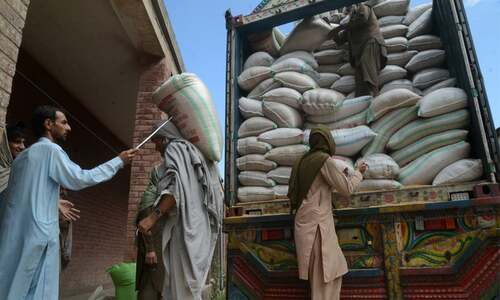COP28 IS kicking off tomorrow in the UAE where Pakistan will plead its case as one of the countries most vulnerable to climate change. Caretaker Prime Minister Anwaar-ul-Haq Kakar, accompanied by Foreign Minister Jalil Abbas Jilani and Minister for Climate Change Ahmed Irfan Aslam, will call for the implementation of the Loss and Damage fund — established last year after Pakistan successfully argued that “what happens in Pakistan will not stay in Pakistan”.
The PM will also urge developed countries to deliver on the long overdue commitment of $100bn per year as climate finance for developing countries. Pakistan stands at a critical juncture, having faced the brunt of climate-induced catastrophes, most notably last year’s devastating floods.
This disaster, which affected 33m people, underscored the disproportionate effect of climate change on developing nations. Pakistan, despite its minimal contribution to global greenhouse gas emissions, has been a repeated victim of extreme weather events, with temperatures soaring to 53°C in recent years.
Its National Adaptation Plan aims to mitigate these impacts through a strategic, government-wide approach. However, such plans require resources far beyond the current capabilities of Sindh and Balochistan, both of which were inundated by the 2022 deluge.
The question of financing looms large: the World Bank estimates Pakistan needs $348bn by 2030, merely to maintain resilience. The financial gap to achieve climate-linked SDGs in developing countries has widened alarmingly, reaching $5.2tr annually. This necessitates a radical overhaul of the international financial system to better support climate-vulnerable countries.
NAP integrates climate-adaptation goals into every facet of development planning. It is imperative that global financial mechanisms mirror this integration. Unfortunately, the Global Goal on Adaptation — a collective commitment under the Paris Agreement aimed at reducing vulnerability to climate change — remains under-capitalised, and the L&D fund is yet to be made functional.
Recommendations by the UN secretary general to scale up renewable funding also need implementation. Moreover, the role of the private sector in providing structural incentives for climate-resilient investments cannot be overstated.
As Pakistan presents its case at COP28, the focus must be on ensuring that the L&D fund is tailored to meet the specific requirements of nations like itself. This includes a strong push for utilising grant-based public finance as the main source of capital and effectively executing the fund within the framework of the UNFCCC and the Paris Agreement.
The challenges are manifold, and the path ahead is fraught with complexities. Yet, the conference presents a unique opportunity for global leaders to demonstrate their commitment to climate justice.
For Pakistan and other vulnerable nations, it is not just a diplomatic engagement but a fight for survival and a plea for equitable, effective action against the climate crisis. The world must not fail them.
Published in Dawn, November 29th, 2023














































Dear visitor, the comments section is undergoing an overhaul and will return soon.